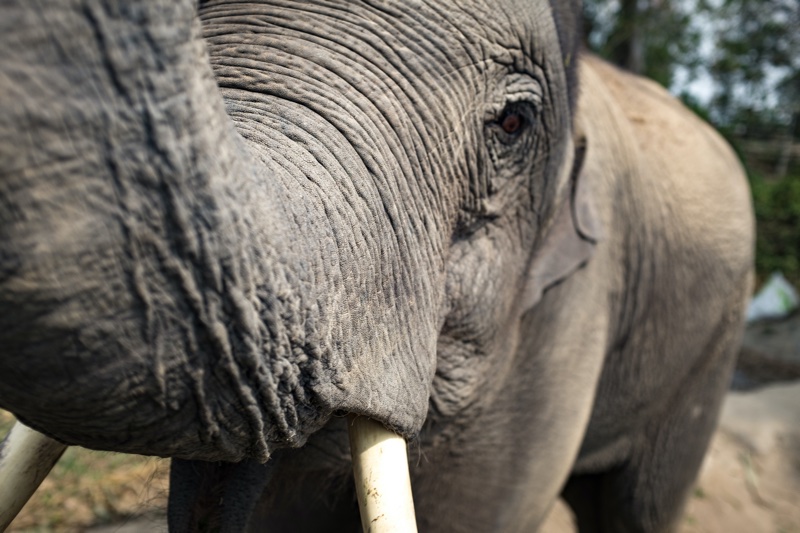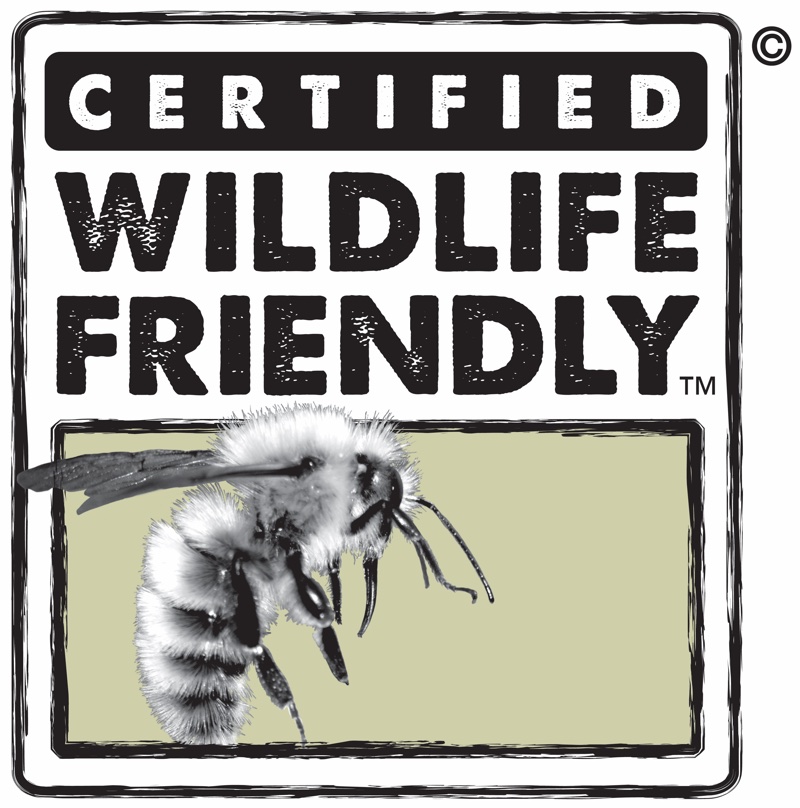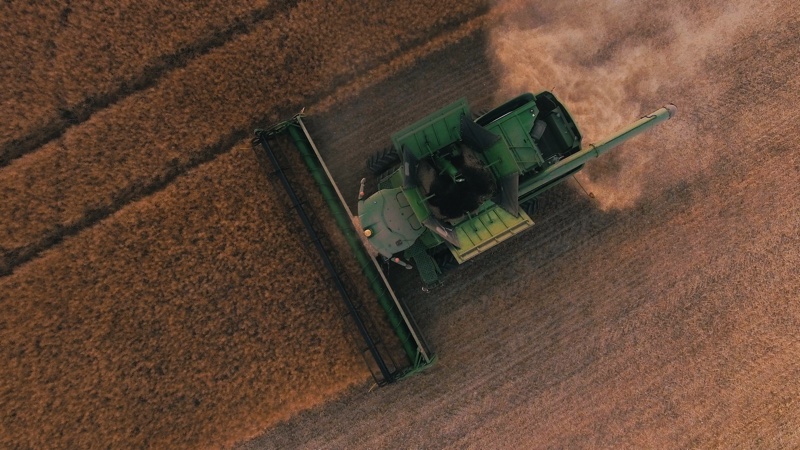The cosmetics sector heavily relies on biodiversity and the by-products of animals and plants in order to develop finished goods – but the category’s intense demand for natural has pushed ecosystems to breaking point.
The negative impacts of the natural world’s exploitation is contributing to the destruction of habitats and the pollution of farmland and rivers from fertilisers and pesticides, while cultivation methods have resulted in the erosion of land.
The exhausting of these natural resources and over-harvesting above the rate of capacity have meant what were once hubs of biodiversity are beyond recovery.
A wake-up call to the devastating impact of human’s imbalance with nature has been the Covid-19 pandemic. If the message was not clear enough that an equilibrium is paramount between nature and humans, it is now ringing in everyone’s ears.
And so, as the penny drops that beauty brands must protect the land they need in order to develop new products, eco-certifications have become a method of proudly wearing their commitments to sustainability.
Most beauty packs are adorned with eco-certified symbols, stickers and swatches that indicate a brand’s dedication to protecting the natural world; from farmland and forests to crops and coral reefs.
Statistics from Ecolabel’s global directory index show there are more than 450 eco-friendly certifications available to brands across all categories on the market, with 65 dedicated to cosmetics and personal care, from carbon neutral supply chains to the Fair Trade emblem.
A harmonious ecosystem
Beauty brands are becoming early adopters of one particular certification that ensures a harmonious equilibrium between humans and the animal kingdom.
Wildlife Friendly certification ensures the world’s most economically disadvantaged communities can exist side-by-side with threatened wildlife in biodiversity hotspots.
“We work two ways with brands. We can link companies with already certified Wildlife Friendly ingredients, such as shea butter, essential oils, hydrosols and many others, or through our Corporate Network Membership programme we can provide consulting to brands on certifying their existing supply chains, building Wildlife Friendly practices into their sourcing principles and approach.” Julie Stein, Executive Director and co-founder of the verification explains to Cosmetics Business.

Having worked with hair care giant Aveda, which sourced artisan-made paper for its holiday campaign gift packaging from a company in Nepal, to date, the brand certifies four indie beauty brands, including its first UK-based enterprise, Scottish skin care brand Seilich, founded by Sally Gouldstone, which highlights the importance of meadows and wildflowers as a host of biodiversity.
In order to be considered, brands are required to run a biodiversity monitoring programme, as well as commitments that prohibit hunting and the exploitation of wildlife. Producers of raw materials are also required to submit a pre-assessment form, product submission form and supply a reference from a conservation entity, from a conversation organisation to government agency of university.
“Covid-19 is in fact a result of imbalance in our relationship with the natural world. The two stories of coexistence between humans and wildlife are very inspiring and inspire buyers to ‘vote with their wallets’ to protect threatened species,” added Stein.
“Consumers increasingly want to support brands and products that are following the most responsible production practices on the ground, versus those that may not be produced as sustainably but donate a percentage of their revenue.
 “Certifications like ours are one way for brands to communicate that they are doing the right thing for the environment. Aspirational consumers want to support brands who ‘get’ this and are walking the walk.”
“Certifications like ours are one way for brands to communicate that they are doing the right thing for the environment. Aspirational consumers want to support brands who ‘get’ this and are walking the walk.”
And the group is on the move to certify more suppliers to the beauty sector. The latest group to become Wildlife Friendly-certified is aluan, a certified organic producer of coconut oil that supplies product for the personal care and food industries, which Stein reveals exclusively to Cosmetics Business.
Sourcing sustainable
While Wildlife Friendly’s standard facilitates the safety of animals in their natural habitat, Rainforest Alliance’s new certification ensures corporate conglomerates are making beneficial advancements to society.
On the back of its merger with sustainability firm UTZ in 2018, Rainforest Alliance established its 2020 Certification Program, aimed at producers of raw materials to protect the landscape they work on and advance the human rights of their communities.
“Certification has had a huge impact in bringing sustainability to the forefront of business thinking, but it must continue to evolve to provide more value to farmers and companies, and ensure that people and nature can thrive in harmony,” Joseph Cameron Booth, UK Lead - Core Markets, Market Engagement at Rainforest Alliance tells Cosmetics Business.
“The 2020 Certification Program is a unique opportunity to really change the way that certification works and how it delivers value to the many people and businesses around the world that use it.”

Farmers are expected to protect natural resources using the land, water and energy carefully. Certified farmers are also required to use fewer artificial fertilisers and pesticides, prevent pollution and manage waste.
However, the certification does not come without a price tag. Prospective companies can expect to pay a premium price for farmers' goods, which is over and above the market value, irrespective of any other premiums and differentials; a Chain of Custody Risk Assessment (CRA) fee of US$100 per site and a Chain of Custody audit fee is also applicable whether a companies’ CRA is low, medium or high; and this is all on top of volume-based royalties.
But Rainforest Alliance claims the certification is an investment that will improve a group’s reputation, profitability and increase production.
“The new standard, comprising an assurance system and related data and technology systems, is designed to deliver more value to the many people and businesses around the world that use Rainforest Alliance certification as an essential tool to support sustainable agricultural production and supply chains.”
Providing a framework
Eco-friendly certifications, while their inception into the sector is still in its infancy, are providing a framework for beauty brands and encouraging better relationships with suppliers, eliminating negative impacts and achieving better opportunities for consumers to buy into a company that is contributing to the improvement of social environments.
“Through the use of eco-labels on products, certification also creates an incentive for brands to make these types of improvements along their supply chains through differentiation in a crowded marketplace and through access to new market segments,” adds Stein.
We ask the expert

Sally Gouldstone, Founder, Seilich
What do eco certifications show to consumers?
"As we all know, the beauty industry is rife with greenwashing, with products frequently marketed on the basis of unfounded sustainability credentials. However, mistaken claims are often made through a lack of understanding rather than malevolent marketing scams, beauty business owners are generally not environmental experts after all.
Eco-certifications take the claim-making out of the hands of beauty businesses, and allow experts in the areas of environmental science, climate change, conservation and/or sustainability to determine whether a product is good for the planet or not.
Complex environmental impact assessments are distilled down into the presence or absence of a simple logo, allowing consumers to quickly and confidently determine whether a product meets their own version of ‘environmentally friendly’, be that organic, low carbon or wildlife friendly.
Unfortunately, the wide range of certifications mean that there can be much confusion about what each of the certifications stands for, particularly when it comes to teasing apart environmental versus personal benefit. For example, legitimate eco-friendly/planet-centred certifications such as carbon neutral, palm-free, wildlife friendly and organic can easily get confused with those aimed at free-from consumer groups, eg, vegan or natural.
Eco-certifications therefore offer the environmentally aware consumer the opportunity to make informed decisions when it comes to exercising their consumer power."
